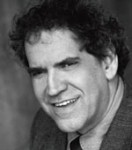By Rabbi Michael Leo Samuel

CHULA VISTA, California — According to rabbinic tradition, in order to impress upon Adam the need for human companionship, God brought him all the animals so that he might notice that each one had a partner. This parade of God’s creatures was intended to lead to a deepening of Adam’s own consciousness and personal reflectivity. Adam thought to himself: “The world may be ‘very good’ from YHWH’s perspective, but from my perspective something is missing.” Now, for the first time in the creation story, Adam discovers something that is not “good” in Eden—human aloneness. The nature of Adam’s loneliness is not just physical; it is also existential. He wonders, “Am I destined to journey throughout my existence all alone?”
In the biblical narrative that is told about Adam, Adam has no personal narrative to speak of. As a solitary being, Adam exists as a two-dimensional individual. Bewildered by his loneliness, Adam does not understand why God made him alone. Rabbinic tradition teaches that Eve’s creation accentuates a very important point that is pivotal to the theme of love and to all interpersonal relations: A person must not exist as an isolated entity living solely for oneself. No human individual is complete in oneself. The quest for human fulfillment can come only once a person reaches out beyond the walls of the individual self by entering into a relationship with a significant Other. As Buber and Lévinas have noted, by encountering the Other as thou, one comes to know the Eternal Thou. Once he meets Eve, Adam finally finds the remedy to his loneliness.
.Throughout history, one essential question has confronted man: How can I overcome my abiding sense of separateness? Is there something more than my own individual existence? Love alone is the only power that can break down the walls of the self that separate humans from others. Love alone provides the elixir that makes separateness and creaturely isolation vanish while still preserving one’s uniqueness and individuality.
To cure Adam of his loneliness, God creates a life partner for him—Eve. In a canny way, the biblical narrator describes Eve as a “helpmate for him,” but the literal expression means “a helper against him.”
Rashi’s translation, “I will make a helper against him,” may seem to imply a certain degree of cultural negativity, since to be “against” someone implies a conflictive relationship. However, conflicts in a relationship need not be viewed as something inherently bad. The rabbis view tension in a marriage as perfectly normal and even healthy at times. It is important that spouses confront each other, especially when one sees the other acting wrongly. Criticism, questioning, and the ability to communicate are healthy and necessary if a couple is to have a really strong marriage.
Thus, if interpreted literally, the Torah intimates there are times a wife can best be a helper by being against her husband. A little dialectic tension between spouses is as important as love. Like salt on a meal, a small measure of contention between husband and wife can be good, but too much can lead to spoiling. Indignation, minus the self-righteousness, is both purposeful and honest—but it must never lead to viciousness or cruelty. Learning to do battle with one another is healthy and constructive, for it brings to a marriage the principle of equal partnership.
Every marriage challenges couples to strive for the best in their relationship. Each partner must learn to acknowledge the needs of the other in which giving and taking are equal; in which each accepts the other, and where the “I” confronts the “Thou.” God intended that their relationship is no less important than procreation per se. Each one exists as a singular being: their relationship to each other is implicit and yet perfectly matched to one another. Man and woman coexist as equals, regardless of role definition in terms of procreation or any other mark of distinction. Although the man was created first, relationships between the sexes are asymmetrical because of the gender differences existing between one another—equality is not necessarily synonymous with identity.
As a “helper” to the man, the woman became his partner spiritually in the overwhelming task of obedience to God and dominion over the earth. She was also intended to be a vital part of extending the generations (1:28). As man’s mate, the woman would always prove to be man’s ultimate friend and companion (2:23-24). No one else can challenge—or provoke man to think critically and self-reflectively—while encouraging and inspiring him to be the best he can be, as she was created to do. Woman was not intended to be merely man’s helper or servant. She was to be instead his partner. As one scholar notes, “Woman is a power equal to a man; she is his match; she corresponds to him in every way.”[1]
*
[From Rabbi Michael Leo Samuel’s new Torah Commentary—Birth and Rebirth Through Genesis: A Timeless Theological Commentary. Rabbi Samuel is spiritual leader of Temple Beth Shalom in Chula Vista. He may be contacted at michael.samuel@sdjewishworld.com